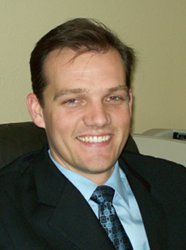San Diego Estate Planning Lawyer
Welcome to Help411.com and the San Diego Law Offices of Scott C. Soady, APC. We offer high-quality, affordable legal services to individuals, families, and small businesses. We are committed to giving you the best advice and legal representation possible at an affordable price. We have many years of experience in preparing legal documents, giving good legal advice, and successfully representing clients in court. When you become our client, we guarantee that you will receive the highest quality of legal advice and representation from us at all times. We welcome your call and look forward to helping you.
Estate PlanningMany people prefer to have some control over the end of their lives and how their property is distributed after they pass away. Certain property will be distributed automatically upon your death, based on whom you have designated as a beneficiary. This includes insurance proceeds, joint bank accounts, and 401ks. However, it can be important to conduct estate planning regarding your estate. Your assets, personal belongings, and real estate constitute your estate. Estate planning may involve preparing a will, as well as powers of attorney and trusts. If you do not conduct estate planning, your estate may not be divided according to your wishes.
WillsIn California, there are four kinds of wills: holographic wills, witnessed wills, statutory wills, and international wills. Witnessed wills need to be written and need to be signed by the testator in the presence of two witnesses. The two witnesses must also sign the will. An estate planning attorney in San Diego can ensure that your will meets these requirements. A witnessed will that does not meet these requirements may not be found valid, and the estate will be distributed according to the laws of intestacy, rather than according to the terms of the will. Holographic wills are easier to contest because the only requirements are that the will be in the testator’s own handwriting and that it reveal testamentary intent. Often, issues arise in connection with whether the handwriting is the testator’s handwriting. Wills are often incorporated into revocable living trusts.
TrustsA trust is an arrangement whereby a third party, known as a trustee, manages a defined set of assets for beneficiaries. The standard for the legal capacity to sign a trust document is higher than the standard for the testamentary capacity to sign a will. The trustee holds legal title to the assets but owes a fiduciary duty to beneficiaries to manage them. There are many potential grounds to contest a trust, including undue influence, lack of capacity, revocation, improper execution, and fraud. Under California law, a valid trust is generally created when a settlor appropriately shows the intention to create a trust, there is property in the trust, and there is a beneficiary. However, a charitable trust does not need a beneficiary.
Powers of AttorneyA power of attorney is a legal document that empowers another person to act on your behalf. If you provide the power to act on your behalf, you are the principal, and the person whom you have empowered is the agent or attorney-in-fact. Our San Diego estate planning attorney prepares health care and financial powers of attorney. A health care power of attorney is a legal document that permits another person to make decisions about your medical care. Probate Code section 4673 sets out the requirements for a valid Advance Health Care Directive (AHCD). A financial power of attorney empowers another person to act on your behalf in financial matters. Powers of attorney can last for varying lengths of time. For example, a springing power of attorney does not become effective until the principal becomes incapacitated.
Long-Term Care PlanningMillions of Americans over age 65 need long-term care. Among those who go into a nursing home, around 10% stay for five years or more. Long-term care includes a broad range of medical and non-medical services for someone who has a disability or chronic illness or who is an advanced age. It may entail help with daily living or custodial care, including activities like going to the bathroom, dressing, and bathing, but it can also involve the medically necessary skilled nursing facilities for which Medicare pays. These services can be offered in someone’s home, in a nursing home, or in an assisted living facility. It can be challenging to plan for long-term care because it is not always clear how long an individual will need it.
ProbateProbate is a court-supervised process for transferring an estate to a will’s beneficiaries. Our San Diego estate planning lawyer can guide you through its complexities. Probate is initiated by filing a petition in the probate court in the county where the decedent lived when he or she died. The first step is that an administrator or executor is appointed by the court to evaluate and value all the assets, and they become responsible to pay debts and taxes from the assets. What is left after debts and taxes are paid will be distributed by intestate succession, or by the terms of the will, if there is a valid will. An executor can petition the court to get a decree of distribution and then transfer or liquidate assets.
Trust and Estate LitigationTrust and estate litigation can include lawsuits to contest the validity of wills and trusts. Possible grounds for contesting wills or trusts include fraud, revocation, improper execution, undue influence, and lack of capacity. Often, these contests are brought because the decedent has a child or spouse who is disinherited or given a lesser share of the estate. In some cases, a caregiver takes advantage of an elderly person’s disability. When this happens, it may be appropriate to challenge a will on the basis of undue influence.
ConservatorshipEstate planning can be comprehensive and include a durable power of attorney, as well as an advance health care directive, but in some cases, a person is seriously injured or incapacitated and does not have these documents in place. Family members or friends of someone who has been injured in a serious accident or incapacitated by a major illness, such as dementia, may wish to petition for a conservatorship with the assistance of an estate planning lawyer in San Diego. The conservator is someone appointed to protect the person who has become incapacitated. Often, it is a family member or friend, but in some cases, it is a professional conservator or institution.
GuardianshipMinors who are left without parents or whose parents have become incapacitated may need a court’s intervention. Guardianship is a judicially supervised proceeding to manage a minor’s estate. It is critical to retain an attorney with experience in guardianship, since this is an area of the law that frequently changes. Alternatives to guardianship include family law custody proceedings, delinquency proceedings, emancipation, getting the minor’s consent to medical treatment, and management of a minor’s estate by other means. In some cases, it may be appropriate to secure a temporary guardianship, such as when a minor requires immediate protection from abuse or when a minor needs to be enrolled in school while their parents are temporarily incapacitated or incarcerated.
Consult a Knowledgeable San Diego AttorneyWhether you need to make plans for your estate, you are considering litigating a dispute regarding a trust or will, or you are seeking to establish a conservatorship or a guardianship, you should consult an estate planning attorney in the San Diego area. Scott C. Soady assists people throughout San Diego County. Call us toll-free at 877-435-7411 or contact us via our online form.
 San Diego Estate Planning Lawyer Law Offices of Scott C. Soady, APC Home
San Diego Estate Planning Lawyer Law Offices of Scott C. Soady, APC Home



